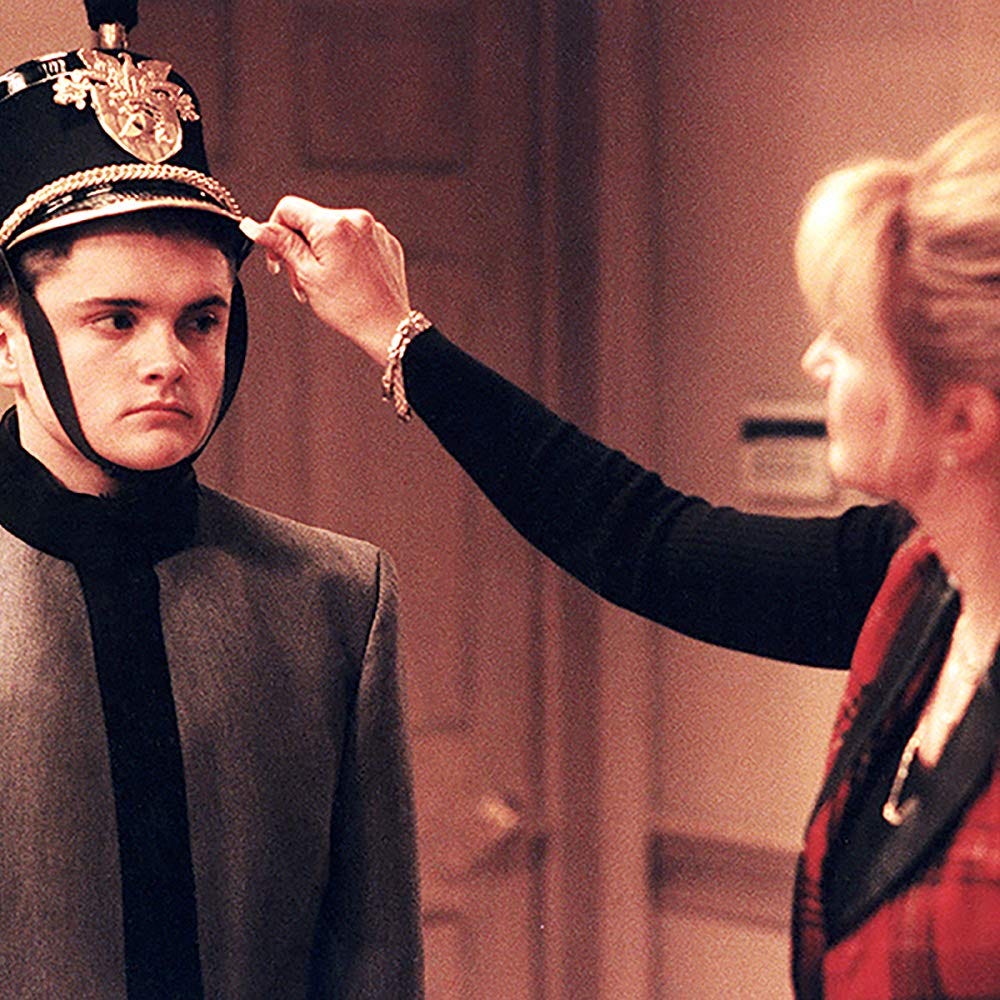
Season three of The Sopranos is not an easy watch, but under all the darkness, there’s a hopeful thesis statement: Empathy can save a life. I mean, yes, it makes that case through a relentless series of tragic events that could have been prevented by even a modicum of care for one’s fellow humans — culminating in the murder of Jackie Jr., who makes one final call to plead with Tony for his life. “When you and my dad did the same thing, you got forgiven,” he reminds him. But Tony doesn’t take kindly to the we’re not so different, you and I approach, and Jackie Jr.’s fate is sealed.
Tony’s inability to connect with others is not always a literal matter of immediate life-or-death, though. He shoots down Christopher’s attempt to mend fences, and he isn’t on the same wavelength as Paulie, either, no matter how desperately Paulie wants to bond over the experience of handling an aging mother. Which makes sense to us — Paulie adores Nucci, and Tony and Livia’s relationship was Tony and Livia’s relationship. But Paulie has no frame of reference for the latter. I like that we never get any clarity about whether that’s because Paulie has ignored things Tony may have said about his mother or because Tony has successfully concealed the less savory parts of his relationship with his mom. And I love that both those possibilities feel equally on-brand — almost as on-brand as the fact that most of Paulie’s professional angst is just an extension of his personal angst about the possibility that Tony likes someone else more than he likes him.
(Speaking of being on-brand, it’s delightful that Vito pretending to be Tony on the phone is so unintentionally accurate: “There’s birds up ahead flying… I see a rabbit or a squirrel. I don’t know what it is. Maybe it’s a possum.”)
Tony also doesn’t see the similarities between himself and Meadow, even though this marks a sharp u-turn on her journey away from her family — which is particularly sad given that her breakup with Jackie Jr. offered such a clear opportunity to choose another path. This season has been so blatantly dark that it’s easy to lose sight of its more mundanely dark moments, and Meadow’s refusal to talk shit about the Family after Jackie Jr.’s funeral is one of its most impressively unimpressive dire moments.
On some level, this choice is justifiable. We all draw lines about whom we will and won’t disparage our families in front of. But Meadow defends the decision in terms that are hard to stomach. Pointing out the presence of “an outsider” is one thing; hailing “loyalty” as an unimpeachable virtue is true becoming-her-parents shit. And the ambivalent response of Kelli Aprile, in her first (and, if I remember correctly, last) appearance, reminds us yet again that it has always been possible for Meadow to extricate herself from this community too. (AS AN ASIDE, the number of creatively-spelled Kellis on this show? A real affront to my dignity. The number of Maries — my middle name, in case you couldn’t piece that together from the everything about me — is unsurprising, but it stings nonetheless.)
To be fair, most of the reason Tony can’t see any of this is that he’s applied all his limited stores of empathy to his son, who finally did the damn thing and managed to get expelled from Verbum Dei. His depth of feeling for AJ isn’t a bad thing, obviously — Gandolfini’s quiet delivery of “how are we gonna save this kid?” destroys me — but the way he acts on it reveals how limited Tony is even when he’s at his most empathetic. He doesn’t want AJ to follow in his footsteps, but he also wants AJ to become the type of person who could, hypothetically, be a good successor. You can read into that tension two ways, I think. The more charitable interpretation is that Tony wants AJ to walk away from this life out of choice and not out of necessity. The more critical one is that Tony wants his children to attain a surface-level image of a better life without forcing him to reconsider the values he holds dear.
The correct interpretation is probably a both/and, though; as the second therapy scene draws out in frustrating detail, Tony’s psyche is a relentless string of contradictions, including an inner conflict about whether or not he’s willing to live with those contradictions. He hates himself because he feels like he’s the source of everything that’s wrong with his family, but he wants to hold everything and everyone else accountable. He yearns for his children to be redeemed, but he imagines that redemption will take shape through each of them trading out one warped social structure for another for another. AJ going to military school, Meadow becoming a “career woman” — these are dreams of attaining respectability, not goodness.
But still, that’s better than nothing. It’s not progress, but it’s still an acknowledgement that there are problems that need to be addressed, that there is progress to be made. Which is sort of this season finale in a nutshell. Unlike the two that came before it, it offers little resolution — Jackie Jr. aside, it doesn’t tie a bow on any of the season’s major stories — and it hints that everything is beginning to wind down, that the number and range of places we might go from here will only diminish. (Tony slapping AJ, Meadow regurgitating her parents’ ideologies, and Adriana unwittingly crossing paths with the FBI are all significant points of no return.) But the future hasn’t narrowed itself down to one possible path quite yet. Even though Tony declines nearly every invitation for human connection, they keep coming his way nonetheless.

